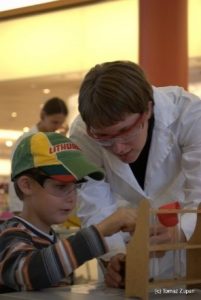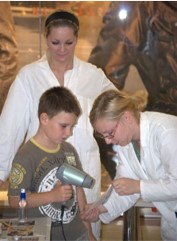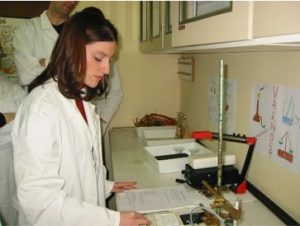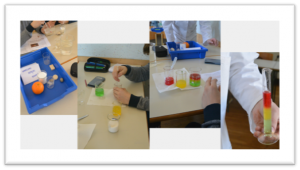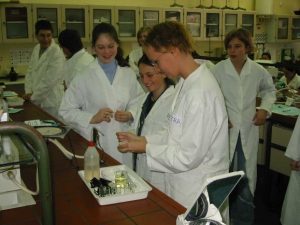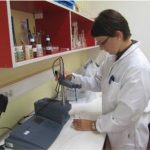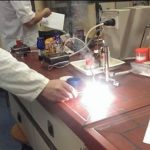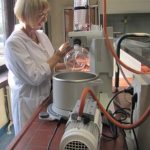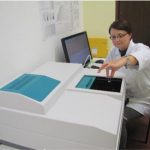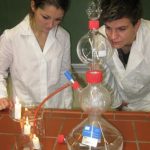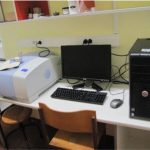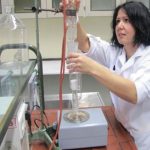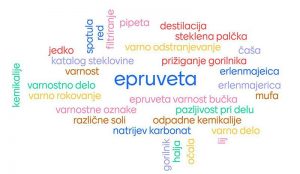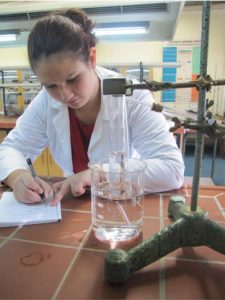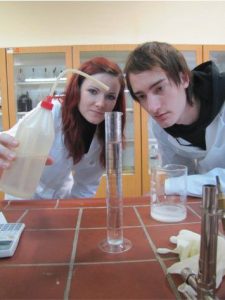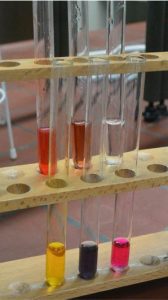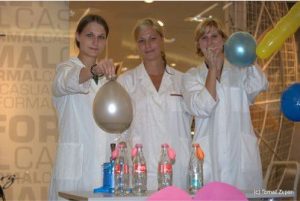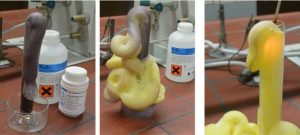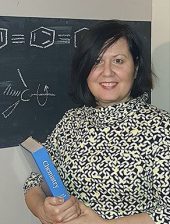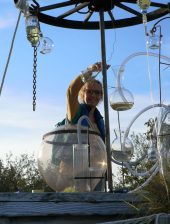Since 2014, the Department of Educational Chemistry has been subordinated to the Department of Biology. We have been successfuly providing education and training to the future chemistry teachers since the establishment of the Faculty of Education in 1986. You can read more about the history, see History – Faculty of Education, UM.
Throughout this time, we follow the four pillars of learning (Delors), which in their entirety should ensure the success of educational work and professional development of teachers:
– Learn to know. Gaining a foundation for understanding.
– Learn to know how to work.. Acting creatively in your environment.
– Learning to know how to live in a community. Contribute your part and collaborate with others in all human activities.
– Learn to be.
The unified five-year master’s program Subject Teacher – Department of Educational Chemistry is a modern evolution of all previous programs that have trained teachers of chemistry. We conduct the program thoroughly, comprehensively, and with a profound interweaving of the professional-chemical, pedagogical-psychological, and subject-didactic areas.
We have been cooperating with the staff of the Faculty of Chemistry and Chemical Technology for many years in the implementation of the course, which is designed to be transparent. Professional fields thus offer modern content that provides our graduate with good employment opportunities outside of educational institutions too. Read more here.
Upon completion of the program, the student is awarded the title of Master Professor for any combination of two selected fields. With additional training, you can also obtain a license to teach Science 6 and Science 7 in elementary schools. Find out more here .
Our research areas of interest are:
The subject didactic area of chemistry education focuses on teaching at the primary and secondary levels with particular attention to the questions “How do students learn chemistry? How can chemistry be taught? How can students be supported to achieve the best possible learning outcomes? “ In the Department of Educational Chemistry, we conduct research in the field of chemical education with regard to the development of learning strategies, active learning, collaborative work, and the development of laboratory skills. We build chemical concepts at the macroscopic, microscopic, and symbolic levels, connecting them together and making them understandable. We explore different approaches to facilitate and better understand the teaching and learning of chemistry. We also look at visualizing chemical phenomena using models to facilitate conceptual understanding, as well as using various modern technologies and approaches.
By developing various programs as part of continuous professional development, we also support teachers from the field because the knowledge, skills, and abilities of chemistry teachers should be developed, improved, and updated over time.
Under the auspices of the Department of Educational Chemistry, we provide support to our students for research in inorganic and organic chemistry. The laboratory for spectroscopy with modern equipment (FTIR for infrared spectroscopy and UV-VIS spectrophometer) is a great help for our research work.
Asst. Prof. Janja Majer Kovačič
My research experience in the field of chemistry is related to polymer and organic chemistry, focusing on the synthesis of hierarchically structured porous systems by emulsion polymerization and polymerization in heterogeneous media in general. The work involves the preparation of an emulsion, more specifically emulsions with a high content of droplet (internal) phase, using various stabilizers as emulsion stabilizers. Line electron microscopy (SEM), FT infrared spectroscopy, UV spectroscopy, mercury and nitrogen porosimetry are techniques used to study new porous polymeric materials.
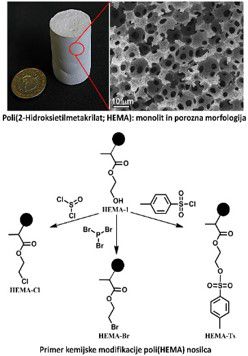
Asst. Prof. Brina Dojer
Moje raziskovalno področje je bila do sedaj koordinacijska kemija, natančneje sinteza novih koordinacijskih spojin nekaterih prehodnih kovin z različnimi ligandi. S tem področjem sem se začela ukvarjati tekom dela za diplomsko nalogo in kasneje v okviru doktorskega študija na Fakulteti za kemijo in kemijsko tehnologijo Univerze v Mariboru. 8 mesecev sem delovala na Karl Franzens Universität v Grazu, kjer sem si v času doktorskega študija nabrala dosti strokovnih izkušenj.
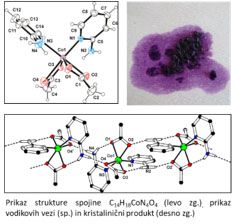
Petra Peranić
My experience is mainly related to work in education and to work in the analytical laboratory, namely to the development and validation of analytical methods.
Well-arranged premises, properly maintained equipment and timely purchase of materials and laboratory equipment are important for the safety and smooth work of all participants in laboratories. Extensive experience in the field of management, organization and work in school laboratories and other laboratories also helps me to support the independent research work of students and colleagues.
The students of the Specialized Teacher, Educational Chemistry major fondly remember studying at our faculty and emphasize that they knew each other well in a relatively small group of students, helped each other, and encouraged each other.
“We were really not just numbers, but people with first and last names, with all the positive and negative qualities. The providers of special didactic subjects knew us particularly well, as well as our weak areas and our strong areas. This allowed us to build on the strong areas and work on the weak areas with quality. Sufficient time was devoted to each individual and everyone was able to test and train in all aspects of professional education. In this way, the future teachers were not “punching” but really shaping themselves with quality. “ (Recollection of a student about her study time).

